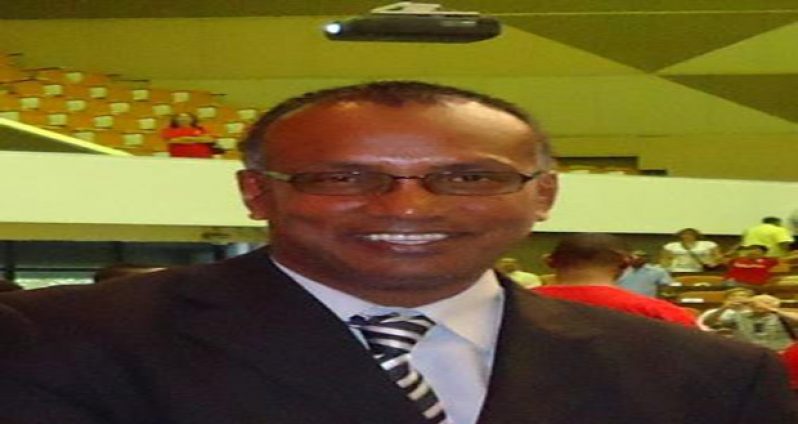DESPITE a recent relaxation of restrictions and the resumption of diplomatic ties, the U.S. continues to vote against lifting the trade embargo imposed on Cuba more than 50 years ago.Guyana and other Caribbean Community (CARICOM) countries, however, continue to be numbered among the 191 nations calling for an end to the blockade, says President of the Guyana-Cuba Solidarity Movement (GCSM), Haleem Khan.
His comments come in the wake of the 193-member U.N. General Assembly voting overwhelmingly on Tuesday, for the 24th consecutive year, to adopt a resolution that renews the call for an end to the economic, commercial and financial blockade imposed by the U.S. against Cuba.
Expressing his disappointment at this latest development in U.S.-Cuba relations, Khan told the Guyana Chronicle yesterday that he was, however, heartened that by a vote of 191:2, the Assembly welcomed the resumption of diplomatic ties between the two countries as of July, and President Barack Obama has exhibited a willingness to work towards the complete lifting of economic sanctions against Cuba.
Noting that the resolution was first passed in 1992, Khan said that at the time, the resolution had received 59 votes in favour as opposed to three against. At the time also, 71 countries had abstained from voting while 46 did not participate in the vote. Hence, there has been a gradual shift to a near-unanimous vote in Cuba’s favour and this is a clear sign of the widespread disapproval of the U.S. embargo against Cuba.
Washington broke diplomatic ties with Cuba and imposed a comprehensive trade embargo on the Communist-run Caribbean island more than 50 years ago, during what was then called “The Cold War.” Its policy today appears to be influenced by domestic politics in Florida, where Cuban exiles have opposed any conciliation with Cuba’s former president Fidel Castro, or current president Raul Castro, who took over from his brother in 2008.




.jpg)









